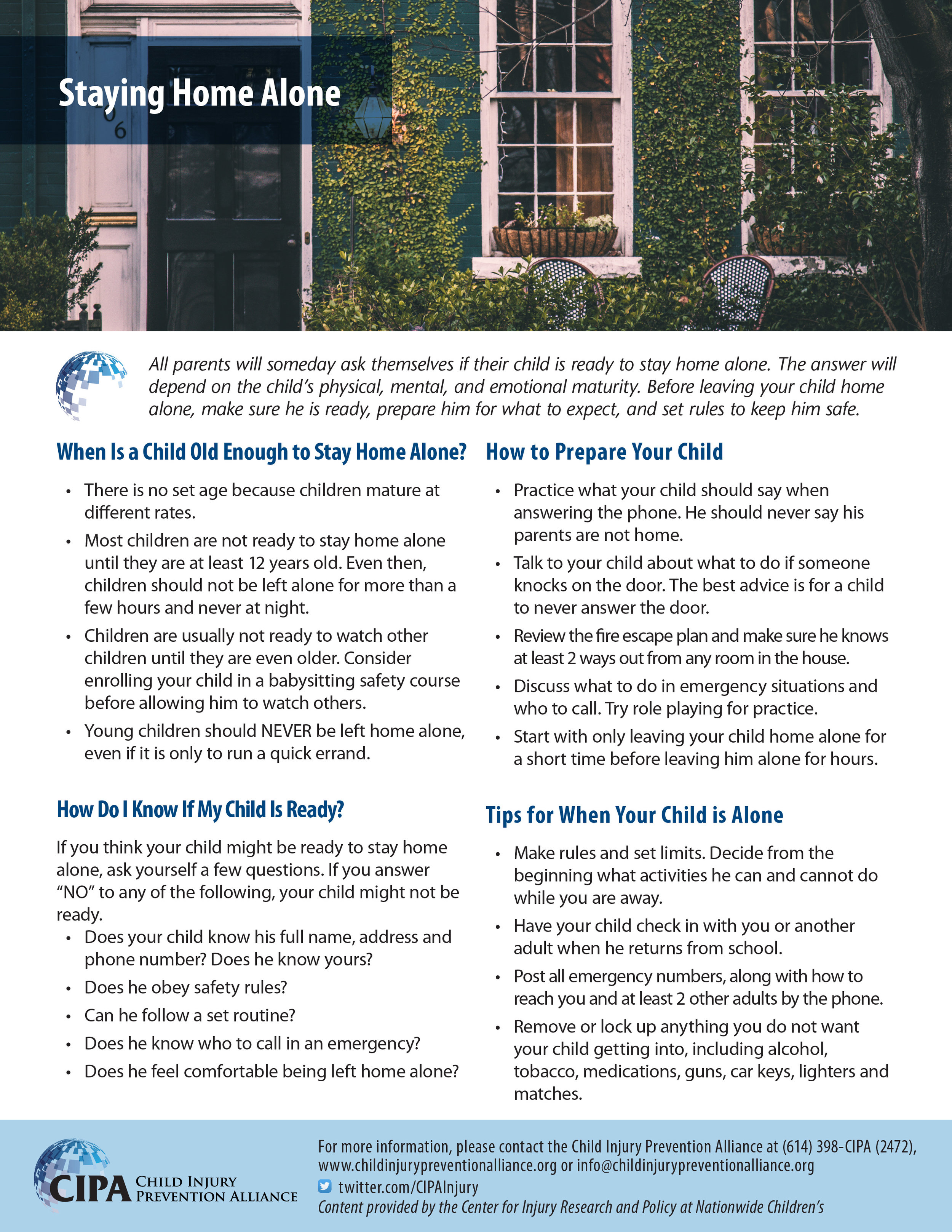Staying Home Alone
All parents will someday ask themselves if their child is ready to stay home alone. The answer will depend on the child’s physical, mental, and emotional maturity. Before leaving your child home alone, make sure he is ready, prepare him for what to expect, and set rules to keep him safe.
Staying Home Alone
All parents will someday ask themselves if their child is ready to stay home alone. The answer will depend on the child’s physical, mental, and emotional maturity. Before leaving your child home alone, make sure he is ready, prepare him for what to expect, and set rules to keep him safe.
WHEN IS YOUR CHILD OLD ENOUGH TO STAY HOME ALONE?
- There is no set age because children mature at different rates.
- Most children are not ready to stay home alone until they are at least 12 years old. Even then, children should not be left alone for more than a few hours and never at night.
- Children are usually not ready to watch other children until they are even older. Consider enrolling your child in a babysitting safety course before allowing him to watch others.
- Young children should NEVER be left home alone, even if it is only to run a quick errand.
HOW DO I KNOW IF MY CHILD IS READY?
- If you think your child might be ready to stay home alone, ask yourself a few questions. If you answer “NO” to any of the following, your child might not be ready.
- Does your child know his full name, address, and phone number?
- Does he know yours?
- Does he obey safety rules?
- Can he follow a set routine?
- Does he know who to call in an emergency?
- Does he feel comfortable being left home alone?
HOW TO PREPARE YOUR CHILD
- Practice what your child should say when answering the phone. He should never say his parents are not home.
- Talk to your child about what to do if someone knocks on the door. The best advice is for a child to never answer the door.
- Review the fire escape plan and make sure he knows at least 2 ways out from any room in the house.
- Discuss what to do in emergency situations and who to call. Try role playing for practice.
- Start with only leaving your child home alone for a short time before leaving him alone for hours.
TIPS FOR WHEN YOUR CHILD IS ALONE
- Make rules and set limits. Decide from the beginning what activities he can and cannot do while you are away.
- Have your child check in with you or another adult when he returns from school.
- Post all emergency numbers, along with how to reach you and at least 2 other adults by the phone.
- Remove or lock up anything you do not want your child getting into, including alcohol, tobacco, medications, guns, car keys, lighters, and matches.
Content provided by the Center for Injury Research and Policy at Nationwide Children’s

